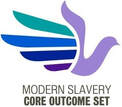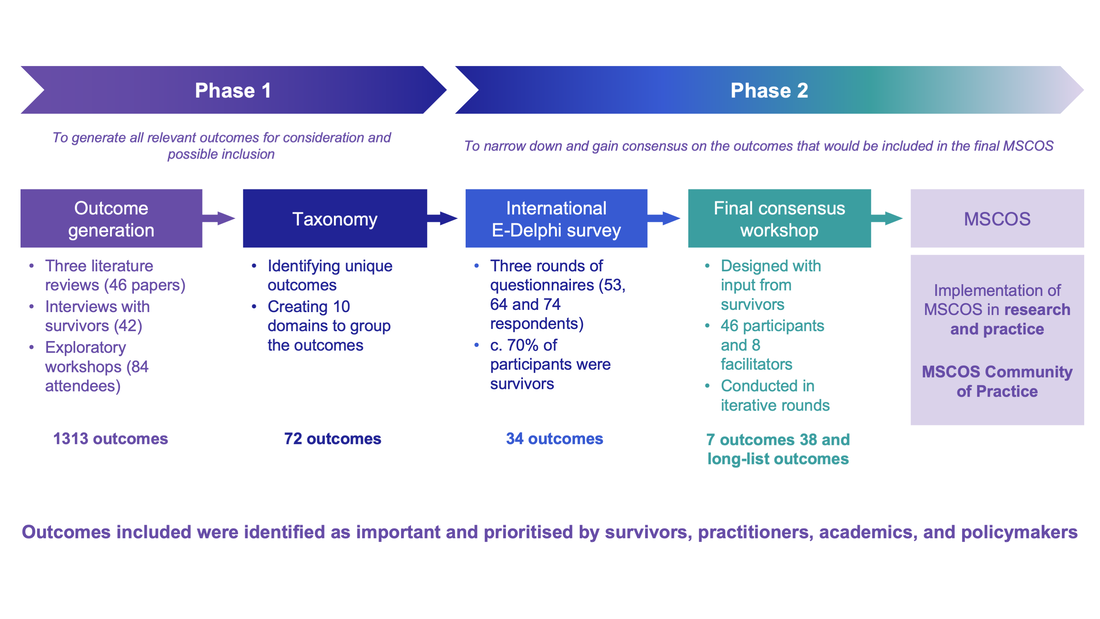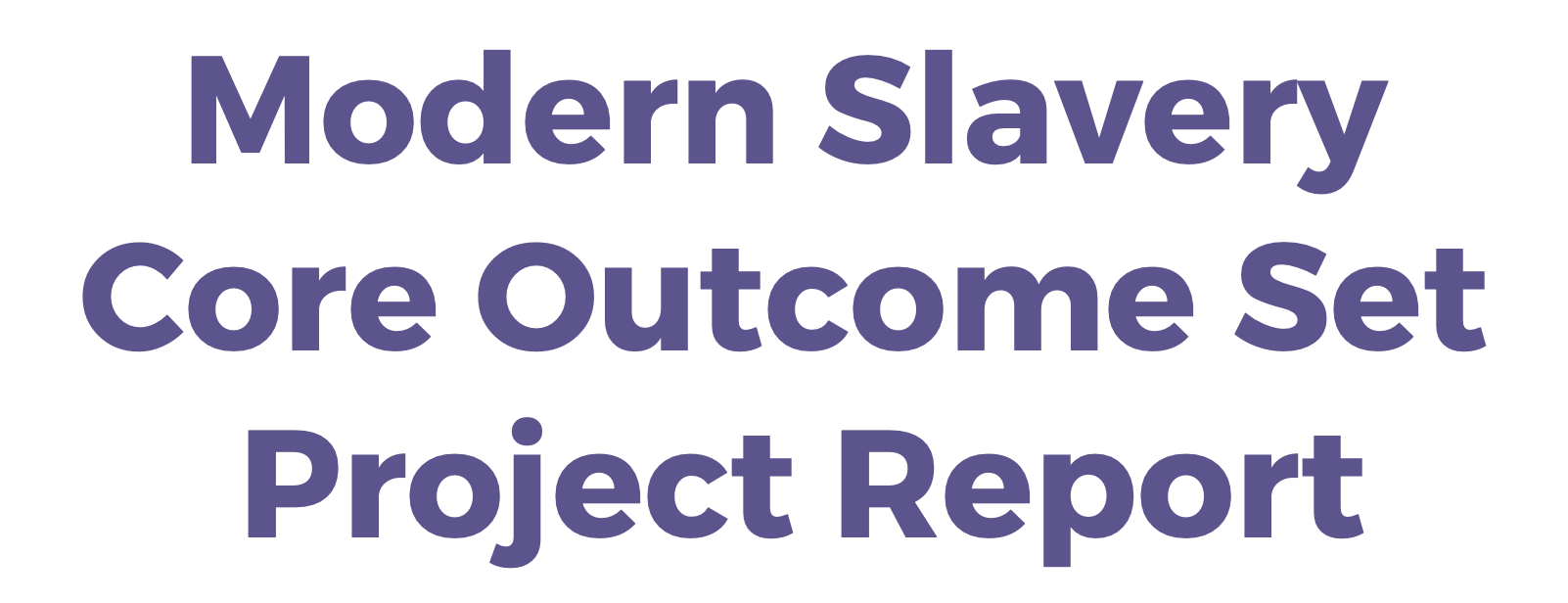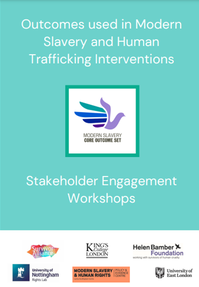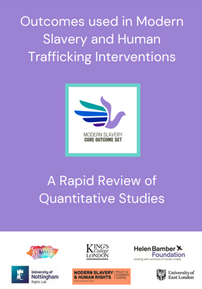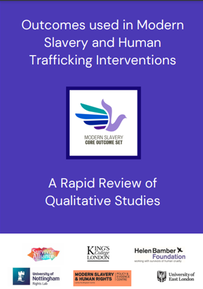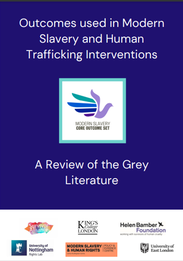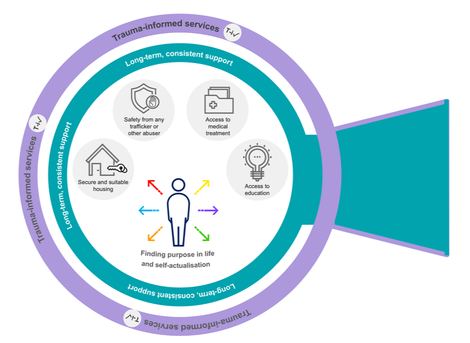The Modern Slavery Core Outcome Set (MSCOS) results from a study by King’s College London, conducted in partnership with Survivor Alliance, the University of Nottingham Rights Lab, the University of East London, and the Helen Bamber Foundation. We have taken inspiration from the impact core outcome sets have made in similar areas, particularly the child maltreatment and domestic abuse core outcome set (Powell et al. 2022). MSCOS is documented in the MSCOS Final Study Report and other materials below. It is registered at the COMET Initiative.
MSCOS Publications
|
|
4. Peer Researcher Academic Paper
Coming soon! |
MSCOS Project Materials
|
1. Exploratory Workshops
The workshops helped us to understand what is meant by modern slavery and human trafficking, what counts as an "outcome", the nuances and feasibility of "recovery", and who defines it. A broad list of outcomes was generated. We looked at priorities for research and how to group these outcomes. Read more here. |
2. Quantitative Literature review
The quantitative literature review explores the findings of existing quantitative studies which have measured outcomes from interventions for survivors of modern slavery and human trafficking. Read more here. |
3. Qualitative Literature Review
The qualitative literature review discusses the findings of qualitative academic research papers, assessing views around psychological and social interventions. Read more here. |
|
4. Grey Literature Review
The grey literature review looks at intervention reports, service evaluations, and other non-academic research to explore post-trafficking outcomes for survivors which are sought or identified in the field of modern slavery and human trafficking. Read more here. |
5. Supplementary interviews
The supplementary interviews comprised qualitative interviews conducted with survivors to address gaps identified in the literature reviews, and secondary analysis of pre-existing anonymised transcripts from the workshops. Read more here. |
6. Analysis of Moments interviews
This study extracts outcome data from pre-existing interview transcripts from adult survivors of modern slavery from Wright et al. (2020). Read more here. |
|
7. International e-Delphi Study
The Delphi technique is a well established approach to answering a research question through the identification of a consensus view across subject experts. It allows for reflection among participants, who are able to nuance and reconsider their opinion based on the anonymised opinions of others. This was held online, making it an e-Delphi study. Read more here. |
|
